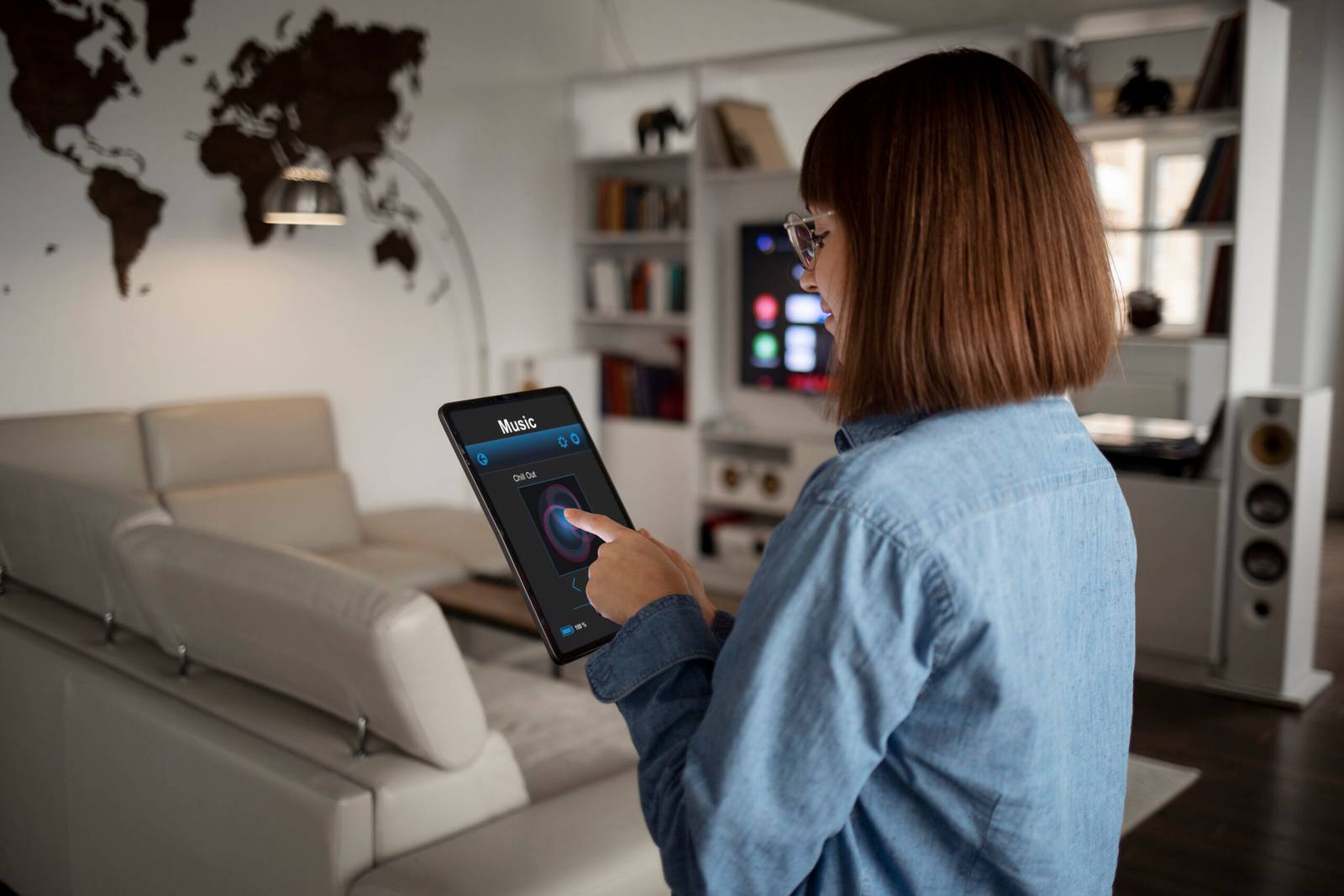The Evolution of Smart Homes: Latest Innovations

by Web Digital
What was once a futuristic dream is now a tangible reality in many The Evolution of Smart Homes: Latest Innovations around the world. Smart homes have evolved dramatically, thanks to the rapid advancement of technology. In this article, we’ll explore the latest innovations in the world of smart homes, delving into the cutting-edge technologies that are transforming our living spaces into hubs of convenience, security, and sustainability.
The Rise of Smart Homes
Smart homes have their roots in the early 20th century, with the development of basic home automation systems like the automatic garage door opener. However, the real transformation began in the late 20th century, as technology became more accessible and affordable. The advent of the internet, smartphones, and wireless connectivity laid the groundwork for the smart home revolution.
One of the driving forces behind the evolution of smart homes is the Internet of Things (IoT). In a smart home, a plethora of devices can be part of the IoT ecosystem, such as smart thermostats, lights, security cameras, and even kitchen appliances.
The latest innovations in smart homes are all about enhancing the interoperability and functionality of these devices. Voice-controlled virtual assistants like Amazon’s Alexa and Google Assistant have become the central control hubs, allowing users to manage various smart devices with simple voice commands. This hands-free interaction has brought a new level of convenience to daily life.
Home Automation and Integration
The true beauty of modern smart homes lies in automation and integration. With the advent of artificial intelligence and machine learning, smart systems can learn from your habits and adapt to your preferences. For example, a smart thermostat can learn when you prefer a cooler or warmer temperature and adjust itself accordingly, saving energy and increasing comfort.
Integration is another key innovation. Smart home platforms like Apple’s HomeKit and Google’s Home seamlessly integrate different devices, making it possible for them to work together. For instance, when you lock your smart door lock, the security system can automatically activate, the lights can dim, and the thermostat can adjust to an energy-saving mode. This level of integration streamlines daily routines and increases the overall efficiency of your home.
Home Security
Home security has been a major focus of smart home technology. The latest innovations in this realm are pushing the boundaries of what’s possible. High-resolution, 4K security cameras with wide-angle lenses provide crystal-clear video footage, and thanks to AI algorithms, they can identify and alert homeowners to potential threats. Facial recognition technology can differentiate between familiar and unfamiliar faces, enhancing security.
Smart doorbells with video capabilities are also making waves. They allow homeowners to see and communicate with visitors remotely through their smartphones, providing an added layer of security. Some models even include package detection, allowing you to know when a package is delivered and if it’s picked up by someone else.
Energy Efficiency
Sustainability is a growing concern, and smart homes are contributing to more energy-efficient living. Smart thermostats, for example, are designed to reduce energy consumption by optimizing heating and cooling based on your preferences and occupancy patterns. Some models can even provide detailed energy usage reports, helping you make informed decisions about energy conservation.
Furthermore, smart lighting systems with LED bulbs are not only energy-efficient but also customizable to create the perfect ambiance for any occasion. They can be controlled remotely, and many offer compatibility with voice assistants for hands-free operation.
Health and Wellness
The latest smart home innovations aren’t just about convenience and security. They are increasingly focused on improving our health and wellness. For instance, smart air purifiers equipped with sensors can monitor air quality and adjust their settings to ensure a healthier indoor environment. This is particularly crucial in regions with air quality concerns or for individuals with respiratory issues.
Additionally, advanced sleep-tracking devices and smart mattresses can help you analyze your sleep patterns, providing insights to improve the quality of your rest. These innovations can measure factors like your heart rate, breathing, and body movement to offer personalized sleep recommendations.
Entertainment and Connectivity
The evolution of smart homes has greatly impacted the way we entertain ourselves. Smart TVs have become more interactive, with built-in voice recognition and the ability to stream content from various online platforms. Some models even feature ambient modes that transform the TV into a piece of art when not in use.
Audio systems are another area of innovation, with smart speakers and soundbars offering immersive experiences. These devices can be connected to your smart home ecosystem, allowing you to control them with your voice or through a centralized app.
Challenges and Considerations
While the latest innovations in smart homes offer numerous benefits, there are also challenges to consider. One of the most significant concerns is privacy and security. With so many interconnected devices collecting and transmitting data, there’s an increased risk of hacking and unauthorized access. Manufacturers are continuously working to enhance security features, but users must also take precautions to safeguard their smart homes.
Interoperability is another challenge. While there have been significant improvements in device integration, not all smart devices are compatible with one another, leading to potential fragmentation within the ecosystem. This can make it challenging for users to create a seamless and comprehensive smart home experience.
Conclusion
The evolution of smart homes has come a long way, with the latest innovations focusing on convenience, security, sustainability, health, wellness, and entertainment. As technology continues to advance, we can expect even more exciting developments in the world of smart homes. However, it’s essential to be mindful of privacy and security concerns and to carefully select devices that fit your specific needs and preferences. With the right choices and considerations, a smart home can truly transform the way you live, making your daily life more efficient, enjoyable, and secure.
Recommended Posts

Tech in Entertainment: VR Experiences and Immersive Content
December 2, 2023

Artificial Intelligence to Mitigating Climate Change
December 1, 2023

Sustainable Agriculture through Technological Solutions
December 1, 2023
